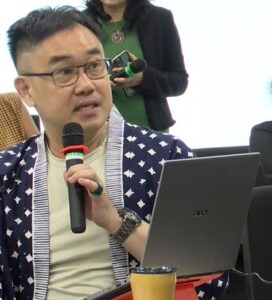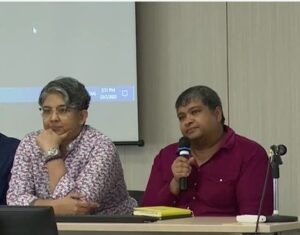Teaching Pre-University Geography Through Role-play and Deep Listening: Enhancing Geographical Inquiry Using Interdisciplinary Strategies for Managing Classroom Dynamics
January 22, 2024
As the world prepares to commemorate International Education Day on the 24th of January, emphasizing the pivotal role of education in fostering global development and understanding, Singapore’s geography syllabus is a testament to this global vision. As the geography curriculum evolves, it seeks to promote critical thinking about power dynamics in human-environment relations, emphasizing social equity and environmental justice.
Associate Professor Kamalini Ramdas (NUS Geography) leads ‘Teaching Pre-University Geography Through Role-play and Deep Listening: Enhancing Geographical Inquiry Using Interdisciplinary Strategies for Managing Classroom Dynamics’, which is funded by the National Institute of Education’s Education Funding Research Programme (NIE ERFP) from 2023 to 2025 and aims to enhance the learning experience in Pre-University Geography classrooms through interdisciplinary strategies.
The project leverages role-play and deep listening techniques to facilitate respectful and critical discussions on complex social topics, drawing from the diverse backgrounds and perspectives of students. Academics from NUS Geography, Theatre Studies, and Communications and New Media collaborate in this endeavor, bringing a rich blend of expertise to the table.
The methodology is practice-oriented, involving Pre-University Geography teachers and students aged 16 to 18 in a series of workshops and surveys. The goal is to develop a role-play/deep listening script and guidelines to help teachers replicate the activity, fostering a safe and imaginative space for learning.
This project stands as a vital step towards nurturing critical and empathetic thinkers who are primed to champion social transformation for a healthier planet and improved livelihoods for vulnerable groups. It promises a fresh, inclusive approach to geography education, encouraging students to explore complex intersubjectivities through innovative and experiential learning strategies.


